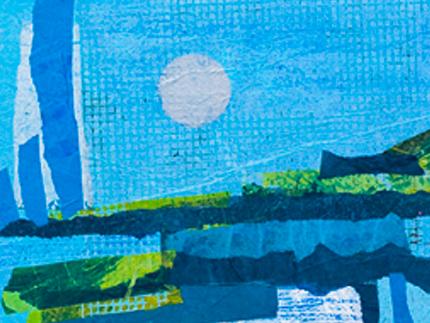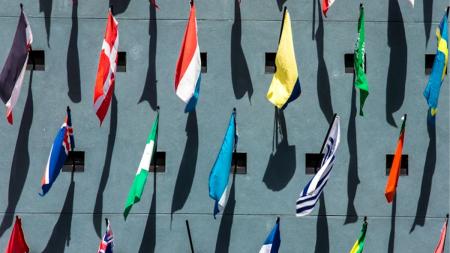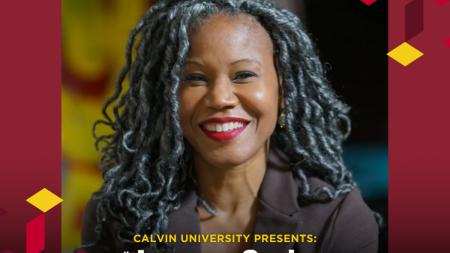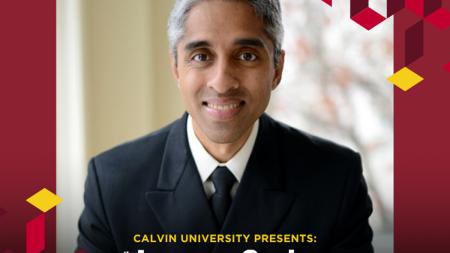Citizens of Heaven

Meeting five days a week with a few others for noon prayer over Zoom brought home aspects of being part of a community that Catherine Gunsalus González and her husband, Justo L. González, had been researching and writing about for years, they said.
“We feel like a small community online. We know each other so much better now than when we were meeting face to face,” said Catherine González, a professor emerita of church history at Columbia Theological Seminary in Decatur, Ga.
Before formation of the Zoom group, church members might meet and chat before or after a Sunday worship service, but busy schedules often kept nearly everyone on the move — until COVID-19 arrived, forcing churches to turn to Zoom and other platforms to connect.
The weekday prayer sessions, said Catherine González, led her to think of the intimate ways in which members of the early church worshiped. Life was slower then. Drawn together, they followed Christ, united by the Scriptures and by the stories people shared about Jesus.
“We see that the basic impulse of the church is for people to be part of a new community that reflects Christ’s kingdom. As they gathered, people in the early church were witnessing to the astonishing fact of the resurrection,” said Catherine González, an ordained minister of the Presbyterian Church (USA) who was the first woman to preach on the popular radio program The Protestant Hour in 1974.
Catherine González and her husband, Justo, offered a presentation titled “Theology behind Early Christian Worship” as part of this month’s Online Calvin Symposium on Worship 2021 hosted by the Calvin Institute of Christian Worship (CICW).
Running through Tuesday, Jan. 26, the symposium includes worship services and speakers from across North America and around the world. All of the sessions are online because of the COVID-19 pandemic.
Maria Cornou, a member of the CICW executive leadership team, served as moderator of the session on the early church.
Reflecting on what Catherine said about her Zoom experience and the early church, Justo González said: “Absolutely central to the Christian life is communal worship. People in the early church met in homes and elsewhere so that they could be part of the body of Christ.”
Justo González is an ordained United Methodist minister and noted historian and theologian. A prolific author whose books on history and theology have been published in 10 languages, he is a well-known contributor to the development of Latino theology.
Especially striking about the early church, he said, is the fact that people from all walks of life in a given community joined together to praise God. In an important way, worship broke down barriers that existed between people on all rungs of the social ladder. People who might not even speak together in other settings were linked, especially in sharing the sacrament of communion.
“In that small community you had slave owners and slaves, men and women, rich and poor, Jews and Gentiles, gathering around the same table,” said Justo González. “We had the formation of a new family,” shaped and secured by their baptism into the new faith, he said.
Following the lead of Christ, who was baptized in the Jordan River and who commissioned his followers to baptize and teach others, baptism was of crucial importance to early Christians; it was their gateway into the church.
As part of this sacrament, said Catherine González, people would either enter the water naked or wearing only sparse clothing. They would be required to take off their jewelry and any other items because baptism was seen as a new birth. You came to baptism in the same way that you were born.
Wearing white robes, the newly baptized could then attend worship and take part in the “supper of the Lord” (1 Cor. 11:20) — or communion or the Eucharist, as it was later called.
“Early Christians celebrated the risen Christ at the table. They believed Christ was sewing them together into one body,” said Catherine González.
Also part of the baptismal process, said Justo González, was being anointed with oil — a sign of being formally welcomed into this new family.
“We read about the anointing of kings and priests in the Old Testament. But now we have an anointing that, after baptism, makes you a royal member of a new priesthood whose job it is to pray for everyone in the world.”
In fact, in the early days of the church, members would stop what they were doing at certain times of the day to pray, aware that others in their community were doing the same, said Catherine González.
And playing a key role in baptism and in eating the bread and drinking the cup of the Lord’s Supper — representing the body and blood of Christ — was the Holy Spirit, she said.
“The Holy Spirit is what makes it all work,” she said. “The Spirit somehow lets the water really baptize and lets the bread and wine truly feed so that they nourish the body of Christ.”
In this time of pandemic, it is valuable to point out that pandemics occurred often during the time of the early church, said Justo González.
“The early church experienced pandemics, and pagans often accused Christians of being the cause,” he said.
But that attitude began to change when people outside the church saw how fearlessly and compassionately Christians set aside their own safety to care for the sick. Attending to the people afflicted by a pandemic spoke volumes about what Christians believed.
“Christians joined with those who were suffering,” he said. “Because that is what Christians are called to do. It wasn’t as much a matter of what you said as it was of what you did.”
In researching the early church, Justo González said, he came across references to what were called Agape meals (see also “love feasts” — Jude 12).
“You were expected to bring whatever musical gifts you had to the meal. There was simple chanting and singing. . . . They had no hymnbooks, so we have no idea what music they sang or what the songs sounded like.”
In addition, he said, the theology of the early church emerged only as Christian practices took hold.
“The theology came later — after Christians had been gathering and developing rituals,” he said. “What concerned them at the start was to be good citizens and make a better city in their own culture while looking toward becoming citizens of heaven.”
Registration for the Online Calvin Symposium on Worship is free and remains open through the final day of the conference, Jan. 26. Register here to engage with the material available since Jan. 6.


